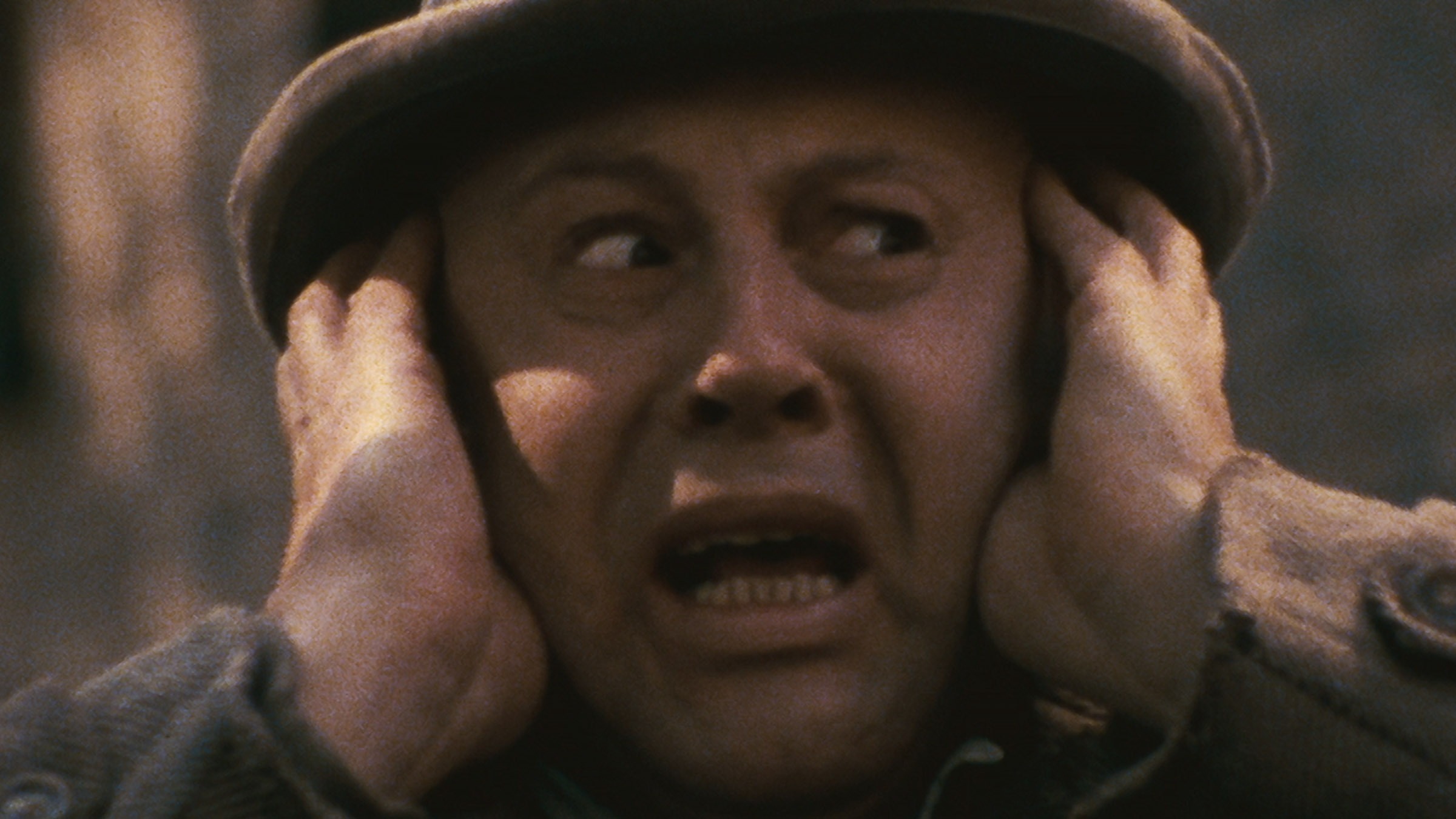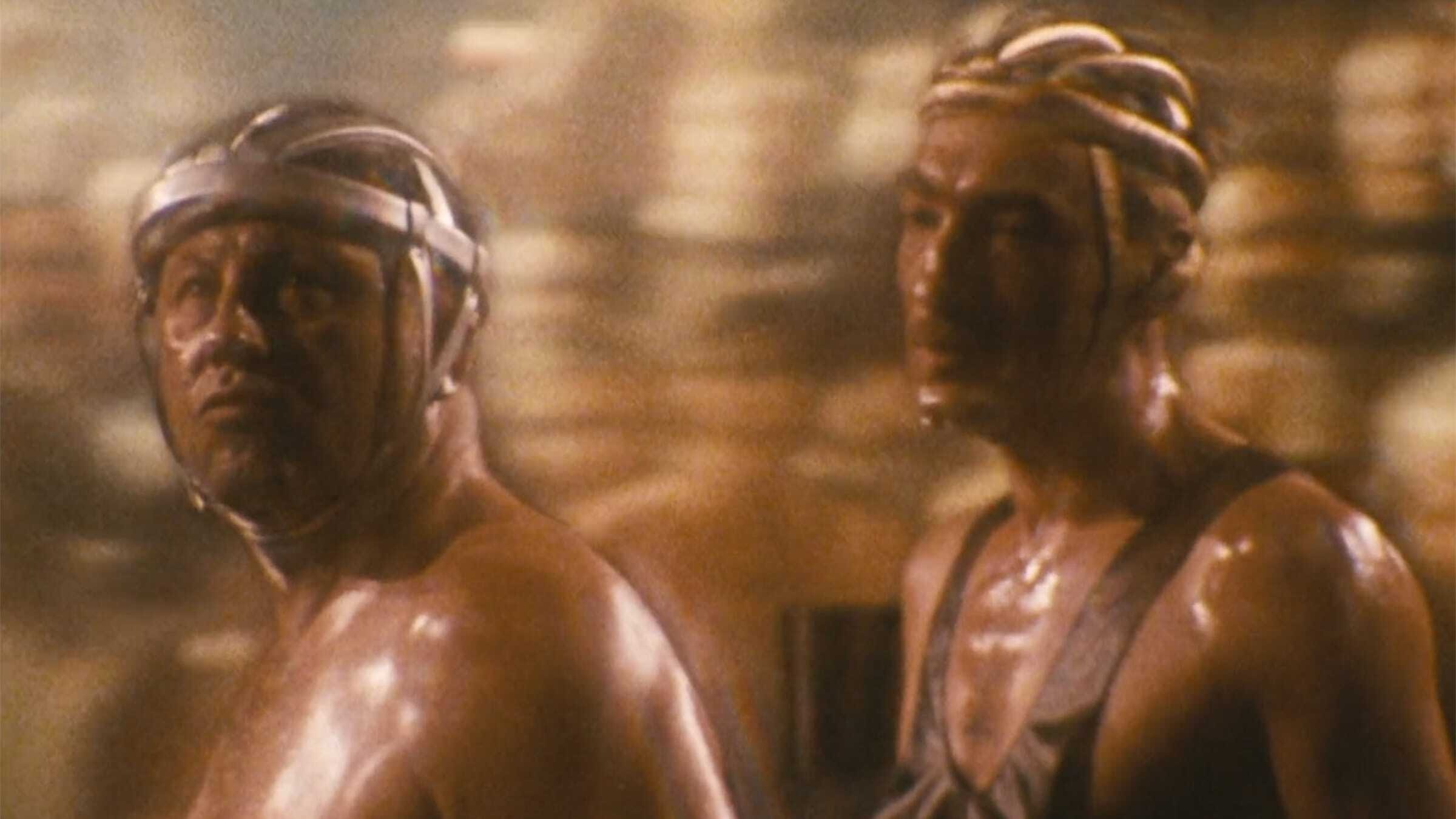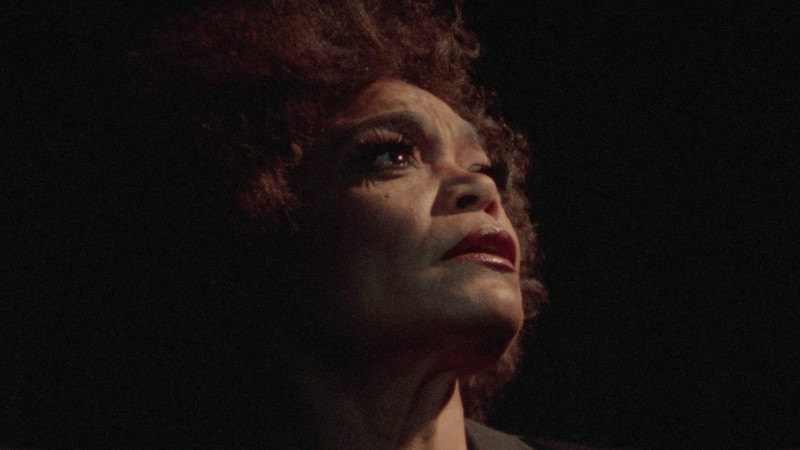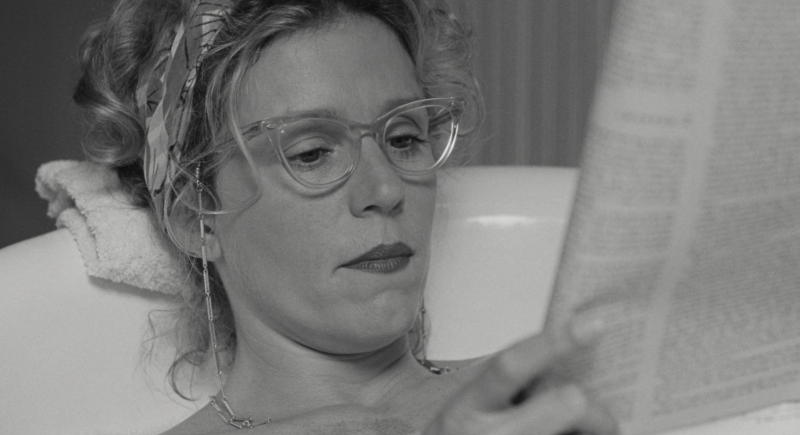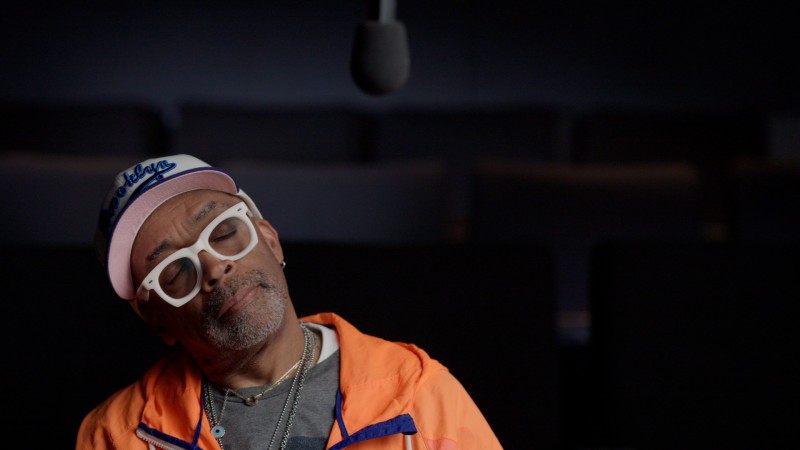Fassbinder and Kraftwerk: A Marriage Made in a New Germany

According to Kraftwerk member Wolfgang Flür, it was toward the end of the group’s first U.S. tour when his bandmates Ralf Hütter and Florian Schneider grew fascinated by the phenomenon of American radio. Their time in the States had been successful largely thanks to local stations in the U.S., which, in the halcyon days before corporations like Clear Channel dictated playlists, had disseminated their music and conducted interviews with them. But the concept was a novelty to these nerdy young men—at that time, there were no local German radio stations on either side of the wall.
The most popular singles from station to station were listed in Billboard magazine as “Radio Activity,” and, on their return to West Germany, the band invented a refrain from that phrase that also conveyed American radio’s egalitarian spirit: “Radio activity / is in the air for you and me.” The ominous double meaning of this refrain, which becomes dominant as the song progresses, forms the central component of the band’s 1976 album Radio-Aktivität (Radio-Activity), their first to include English-language lyrics. The title song, and the feelings it created, would become an indelible part of the epilogue to Rainer Werner Fassbinder’s Berlin Alexanderplatz, a film that interrogates the country’s real and imagined past, present, and future.
Like Can and Tangerine Dream, Kraftwerk formed within West Germany’s nascent avant-garde music scene, with the desire to create a new, authentic German culture that was neither influenced by postwar British or American pop nor tainted by the genocidal ethnonationalism of Nazism. “The culture of Central Europe was cut off in the thirties, and many of the intellectuals went to the U.S.A. or France, or they were eliminated,” said Hütter in a 1975 interview. “We are picking it up again where it left off, continuing this culture of the thirties, and we are doing this spiritually.”
Based in Düsseldorf, West Germany’s industrial heartland, the band drew its inspiration from the “mechanical” nature of the German language, aiming to create music that sounded like it had been produced by actual machines and to play with “German precision.” Even the name Kraftwerk, which means “power plant,” expressed the musicians’ investment in being German; like a traffic cone, an image that adorned the band’s first album covers, signs that said “kraftwerk” were a common sight along Rhine-Ruhr roads—associating the band and its sounds with the depersonalized and automated, but also with something quotidian and familiar. Songs with simple melodies about driving down the Autobahn, with tones that imitated honking horns and roaring engines, were what Hütter described as “industrielle Volksmusik.” They were undeniably familiar and regional yet impossibly strange; they were mechanical and detached yet had an undeniable strain of humor.
A member of the same bourgeois postwar generation as Hütter and Schneider, Fassbinder had similar artistic goals of forging a new German identity. As with Kraftwerk’s music, his cinema was not merely reclaiming what had been lost but moving into the future with something unique. “I would say that in 1945, at the end of the war, the chances which did exist for Germany to renew itself were not realized,” said Fassbinder. “Instead, the old structures and values on which our state rests now as a democracy have remained the same.” The admiration between Kraftwerk and Fassbinder was reciprocal. As bandmember Karl Bartos explained, “Fassbinder loved it . . . [his] crew were sometimes forced to listen to Kraftwerk eight hours a day on the set. He would play Autobahn and Radio-Activity to the point where no one could stand it anymore. It was a bit like brainwashing. Flattering to hear, though.” And sometimes, after a long day at Kling Klang studio, the band would put on the director’s film or TV work.
Though Fassbinder had used “Radio-Activity” in Chinese Roulette (1976), his coked-out chamber drama that starred Anna Karenina, Margit Carstensen, and Ulli Lommel, the track’s recurrence throughout the final episode of Berlin Alexanderplatz gives it a more natural, depraved home. Both the song and the epilogue attempt to articulate that new German identity, smashing together antithetical feelings, ideas, and cultural detritus. Featuring repurposed bleeps of a Geiger counter and a mellifluous pop hook, “Radio-Activity” neatly pairs with Doblin’s source novel, a work that is narrated by the chaos of a modern city and periodically needles its protagonist with the cacophonous sounds of mass media. Snippets of Kraftwerk’s song are used as markers of torture and agony, and upend the series’ carefully constructed historical verisimilitude. The disjunctions remove viewers from a simple understanding of history as a chain of cause-and-effect relationships and interconnected events, allowing them to see the imminent danger that can lie beneath seemingly banal times.
